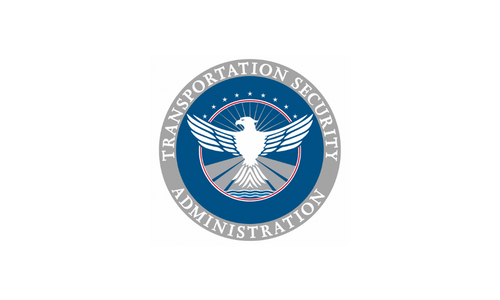
Transportation Security Administration
Our mission is to protect the nation’s transportation systems to ensure freedom of movement for people and commerce. The TSA vision includes an agile security agency, embodied by a professional workforce, that engages its partners and the American people to outmatch a dynamic threat.
Note: All information on this page was found on the TSA’s website.
Screening Infant & Children
To ensure your security, all travelers are required to undergo screening. However, TSA has developed modified screening procedures for children who appear to be 12 years old and younger. TSA officers will consult parents or the traveling guardian about the best way to relieve any concerns during the screening of a child.
For children 13 years and older, TSA’s standard screening procedures apply. Accessible property of all travelers, regardless of age, must be screened. If there is an alarm, the individual will undergo additional screening.
Children 12 and under can leave their shoes, light jackets and headwear on during screening.
Children will not be separated from their parent/guardian.
Remove infants and children from strollers and car seats and carry them in arms through the walk-through metal detector.
Infants may be carried in a sling/carrier (to include lap baby) through the walk-through metal detector or when being screened in a wheelchair, but may be subject to additional screening
Modified screening procedures are in place to reduce the likelihood of a pat-down
Identification & Boarding Pass
International Documentation
Carry Ons
- Place all carry-on baggage such as children’s toys, bags and blankets on the X-ray belt for screening.
- Strollers, umbrella-strollers, baby carriers, car and booster seats and backpacks must be screened by X-ray.
- Place items in the stroller pockets or baskets, in a carry-on bag or on the X-ray belt for screening.
- Equipment that does not fit through the X-ray machine will undergo a visual/physical inspection by TSA officers.
Personal Items
Formula, breast milk, toddler drinks, and baby/toddler food (to include puree pouches)
Formula, breast milk, toddler drinks, and baby/toddler food (to include puree pouches) in quantities greater than 3.4 ounces or 100 milliliters are allowed in carry-on baggage and do not need to fit within a quart-sized bag. Formula, breast milk, toddler drinks, and baby/toddler food (to include puree pouches) are considered medically necessary liquids. This also applies to breast milk and formula cooling accessories, such as ice packs, freezer packs, and gel packs (regardless of presence of breast milk). Your child or infant does not need to be present or traveling with you to bring breast milk, formula and/or related supplies.
Inform the TSA officer at the beginning of the screening process that you are carrying formula, breast milk, toddler drinks, and baby/toddler food (to include puree pouches) in excess of 3.4 ounces. Remove these items from your carry-on bag to be screened separately from your other belongings. TSA officers may need to test the liquids for explosives or concealed prohibited items.
Although not required, to expedite the screening process, it is recommended that formula and breast milk be transported in clear, translucent bottles and not plastic bags or pouches. Liquids in plastic bags or pouches may not be able to be screened by Bottle Liquid Scanners, and you may be asked to open them (if feasible) for alternate screening such as Explosive Trace Detection and Vapor Analysis for the presence of liquid explosives. Screening will never include placing anything into the medically necessary liquid.
TSA X-ray machines do not adversely affect food or medicines. However, if you do not want the formula, breast milk, toddler drinks, and baby/toddler food (to include puree pouches) to be X-rayed or opened, please inform the TSA officer. Additional steps will be taken to clear the liquid and you or the traveling guardian will undergo additional screening procedures, to include Advanced Imaging Technology screening and additional/enhanced screening of other carry-on property.
Ice packs, freezer packs, frozen gel packs and other accessories required to cool formula, breast milk, toddler drinks, and baby/toddler food (to include puree pouches) – regardless of the presence of breast milk – are also allowed in carry-ons, along with liquid-filled teethers. If these items are partially frozen or slushy, they are subject to the same screening as described above.
Travelers requiring special accommodations or concerned about the security screening process at the airport may request assistance by contacting TSA Cares online at http://www.tsa.gov/contact-center/form/cares or by phone at (855) 787-2227 or federal relay 711.
Car Seats
Find full safety seat requirements on the airline’s website.